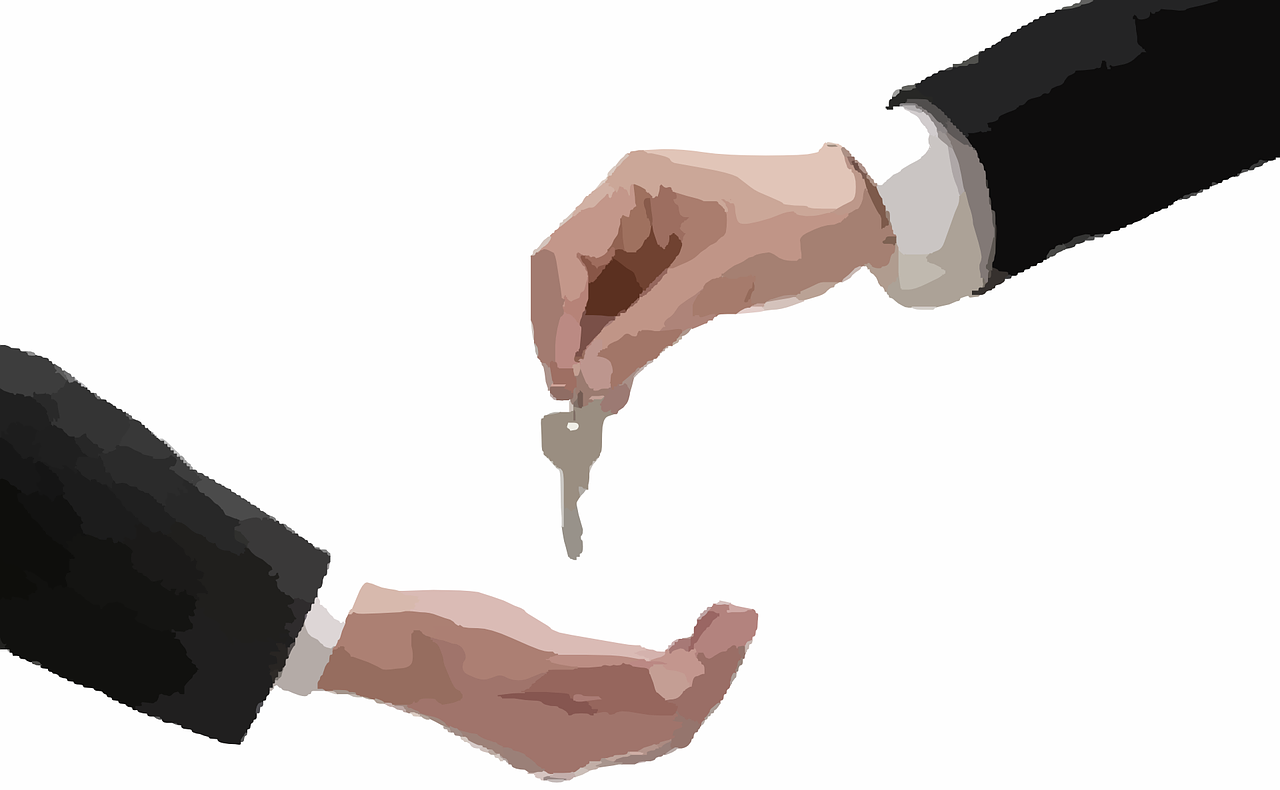Start Thinking About Tomorrow Today and Get the Home You Want the Smart Way!
Posted by Vicki Flyth on Monday, July 15th, 2019 at 12:37pm.
Buying a home is exciting and The DuPree Team is here to help walk you through the process! But it can also feel overwhelming at times—especially when you see median listings priced at $345,000 and available homes flying off the market in as little as 39 days on average. With real estate trends like these, you might be tempted to make an impulsive purchase that could hurt your financial goals and keep you paying a mortgage well into retirement. No one wants that! Buying a home is worth taking the time to do the right way. That means buying a home that you love that doesn’t hurt your future goals. We’ve put together 10 tips for home buyers as they tackle the home-buying process. Put these into practice today so your next home is a blessing not a burden.

Pay Off Debt and Build an Emergency Fund
Owning a home is expensive—much more expensive than renting, even if your monthly house payment will be similar or cheaper than your current rent amount. When you own a home, you are responsible for all the maintenance and upkeep costs. Make sure you are debt-free and have an emergency fund of three to six months of expenses in place.

When you get into a home with no payments (besides the mortgage) and have a nice big emergency fund, you’ll have the cash to pay for unexpected expenses that suddenly come your way. Once you are debt-free, you want to stay debt-free. When you are shopping for your first home and getting excited about decorating and filling it with new furniture, be mindful of your budget. Remember that taking on new debt in the middle of buying a house could delay your approval for a mortgage and make you miss out on the perfect home.
How Much House You Can Afford?
Before you get emotionally attached to a beautiful house, check your monthly budget to determine how much house you can afford. Leave room in your budget for other things, make sure your monthly housing costs (including HOA fees, taxes, insurance, etc.) are going to be no more than 25% of your monthly take-home pay.
Example:
Let’s say your income is $5,000 a month. Multiply that by 25% to establish your maximum monthly house payment of $1,250. Based on a 15-year mortgage with a 4% fixed interest rate, here are the home options you can afford (not including taxes and insurance):
- $187,767 home with a 10% down payment ($18,777)
- $211,238 home with a 20% down payment ($42,248)
- $241,415 home with a 30% down payment ($72,424)
- $281,650 home with a 40% down payment ($112,660)
That’s an easy way to find a number in your ballpark. Don’t forget that property taxes and homeowner’s insurance will affect your monthly payment. You’ll need to factor those numbers in before settling on a maximum home price. Property tax rates and the cost of homeowner’s insurance vary, check with your DuPree Team agent and insurance company for estimates to calculate how much house you can afford.
Saving a Down Payment
If saving up to pay the total price of a house in cash isn’t reasonable for your family’s timeline, at least save for a down payment of 20%. Then you won’t have to pay for private mortgage insurance (PMI), which protects the mortgage company in case you can’t make your payments and end up in foreclosure. PMI usually costs 1% of the total loan value and is added to your monthly payment. If a 20% down payment seems out of reach for you there are first-time home buyer programs that offer single digit down payments. These options will cost you more in the long run but are a great option for the first-time buyer. For more information on the types of loans available contact your DuPree Team agent or mortgage broker of choice.

Saving for Closing Costs
Along with your down payment, you’ll also need to pay for closing costs. If you’re a first-time home buyer, you may be wondering how much it costs to close on a house. On average, closing costs are about 3–4% of the purchase price of your home.Your lender will give you a specific number, so you know exactly what to bring on closing day. These fees pay for important steps in the home-buying process, including but not limited to:
- Appraisal
- Home inspection
- Credit report
- Attorney
- Homeowner’s insurance
Let’s see how this plays out with our example of a $172,600 home. If you multiply $172,600 by the higher 4% closing cost average, you’ll find that you need $6,904 for closing costs. Now let’s add that to your 20% down payment of $34,520. The two together equal $41,424, which is about what you’ll need to save to pay for the down payment and the closing costs on your house.
$172,600 x 4% = $6,904
$6,904 + $34,520 = $41,424
Getting a Preapproval
Once you’re confident you have enough cash saved to pay for closing costs and 20% of your home, you’re ready to handle the other 80% by talking to a mortgage lender. Don’t just get prequalified for a loan, take the extra time to get a preapproval letter before you start your home search. A preapproval shows sellers that you’re a serious buyer, which is a great way for first-time home buyers to get ahead in a competitive market. To get preapproved, your lender will need to verify your financial information (proof of income, taxes, etc.) and submit your loan for preliminary underwriting. If you need a lender, The DuPree Team works with several on a regular basis that we can connect you with, just ask!
Finding Your Price Range
According to a report by the National Association of Realtors (NAR), most buyers either found the home they purchased online (51%) or through a real estate agent (31%). Doing both is what sets you up for success! Find homes you like online at websites like Zillow.com and Reltor.com then send them to your DuPree Team agent so they have a good idea of what you’re looking for. Then your agent can use the multiple listing service (MLS) to find additional homes that meet your criteria in your desired areas and further refine your search results. The MLS is created, maintained and paid for by real estate professionals to help buyers navigate the largest possible pool of properties for sale in the market. DuPree Team agents also provide valuable market expertise and can help you find great deals on homes as soon as (or before) they’re listed.
Research Neighborhoods

After you’ve found some homes for sale in your price range, be careful not to make a decision based on the property alone. According to a NAR survey, 78% of home buyers believe neighborhood quality is more important than the size of a home. And 57% of buyers would opt for a shorter commute over a larger yard. Make sure you factor neighborhood quality and location into your decision. Ask your DuPree Team agent for information on crime rates and the quality of schools around your prospective neighborhoods. Calculate your commute times to see if they seem manageable. Visit the neighborhood at different times and days to check for traffic conditions, noise levels, and if people are comfortable being outdoors. Only choose a neighborhood that you and your family feel good about.
Attending Open Houses
Once you’ve narrowed down the neighborhoods, attend a few open houses. Looking at homes that are for sale—even if they’re not a perfect fit for you—is a great way to learn more about the area. When you eventually do find a house you love, you’ll know how your place compares to other homes in that neighborhood. When it comes to buying, a good strategy is to find the most affordable house in the best neighborhood. If you buy at the bottom of the price range in a good neighborhood, you’ll have more room to build home value.
Making Competitive Offers
Let’s say you found the home you want and can afford; you are already preapproved for a loan, you are ready to make an offer. If you’re a first-time home buyer, it may be hard to know how much you should offer. That’s when you can rely on the expertise of your DuPree Team agent. Ask your agent to help you make sure your offer is competitive but also within your budget and the home’s value. Be careful not to make an impulsive offer that’s higher than you can afford just to knock out the competition. A personalized letter is a great way to help your offer stand out among multiple bids in a hot market.
Closing

Once a seller accepts your offer, the closing process will begin. Keep things running smoothly by knowing what to expect when closing on a house. The average closing process takes 30-45 days, which gives you plenty of time to tackle closing items. Your DuPree Team agent will schedule the remaining steps, from home inspection to final walkthrough, and keep you informed about any roadblocks along the way. As you prepare for closing, make sure you read every document and ask your agent to explain anything you don’t understand—especially before you sign the official contract for the home transaction. It’ll be your signature on the documents, so you’ll be the one responsible for anything you sign.
Ready to Get Started?
A home is a big purchase, maybe even the biggest one you’ll have ever made up to this point in your life! Because of that, you don’t want to risk messing this up. Your DuPree Team professional will take the weight off your shoulders by helping you find a home, negotiate a deal, and see the process through until closing. The DuPree Team has been in business for 40+ years helping South Floridians buy and sell homes in all three counties. Let our experience save you time, money and stress.
The DuPree Team hopes that you and your family have a successful year and are so happy to have you as part of our real estate family. We hope that you found this information useful and look forward to providing you with curated and informative email blogs on a monthly basis. If there is any topic you think we should cover, please let us know! Please keep us in mind the next time you or anyone you know is looking to buy or sell in South Florida.
Visit us on Facebook and leave a review of our services if you like!
